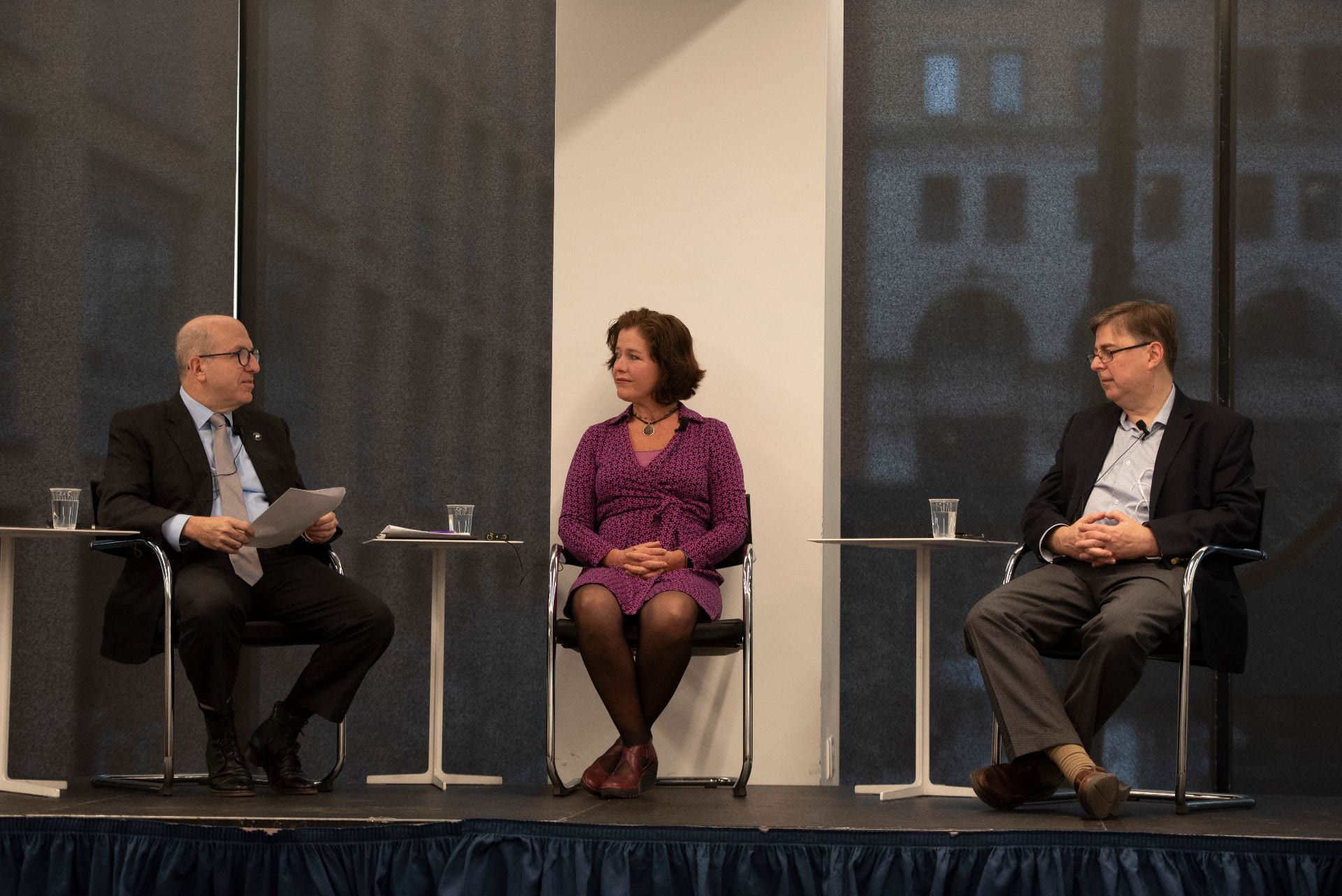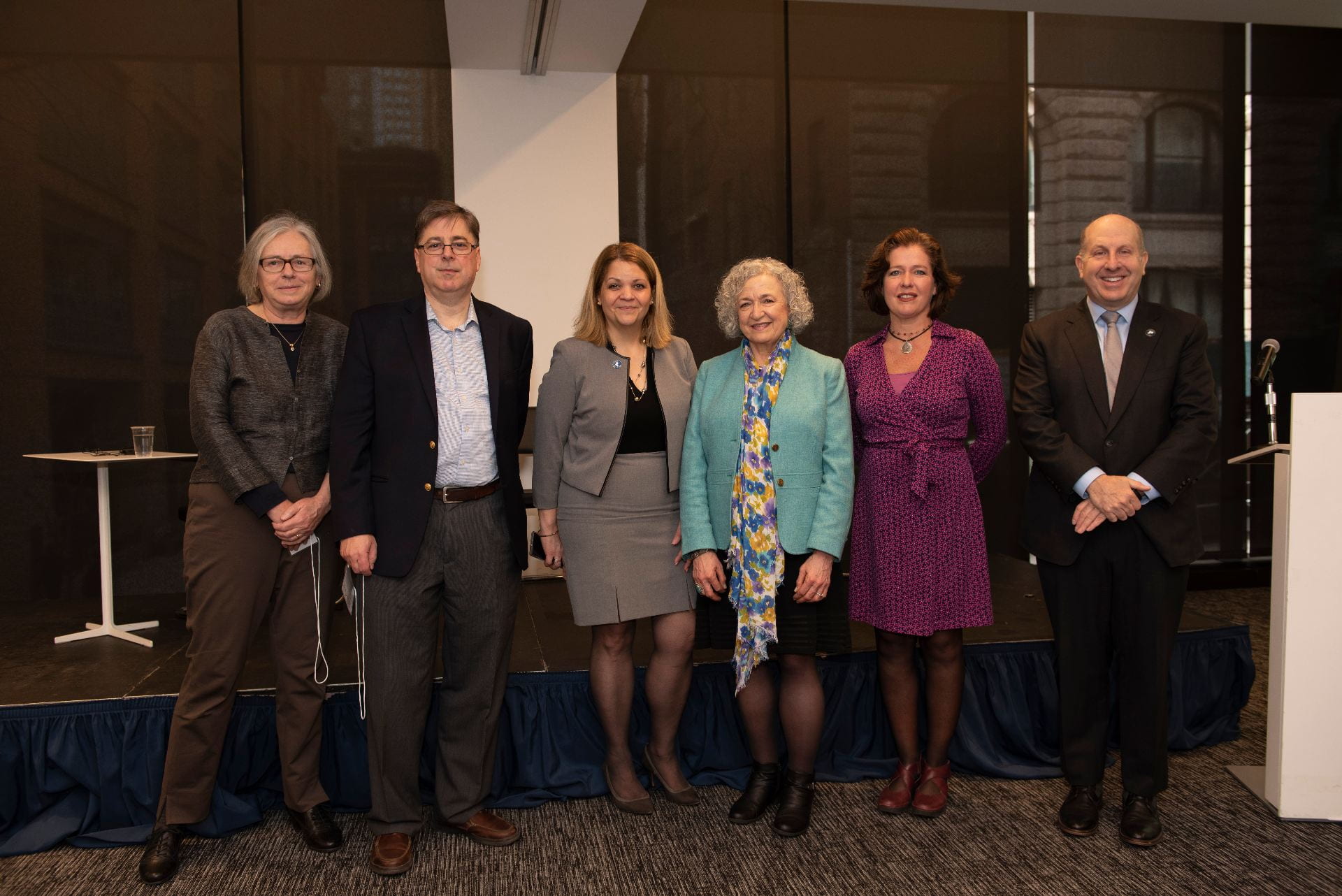The Meat of the Matter
Experts and attendees at the “Resilience IV Summit: The Future of Meat?” examined the many facets of the production and consumption of meat.
The Meat of the Matter
Experts and attendees at the “Resilience IV Summit: The Future of Meat?” examined the many facets of the production and consumption of meat.


O n March 6, 2020, Dyson College and the Dyson College Institute for Sustainability and the Environment presented “Resilience Summit IV: The Future of Meat?” The one-day event brought together prominent scientists, farmers, ethicists, and activists for thought-provoking conversations covering a range of topics including regenerative and plant-based meat options, the relationship between livestock production and climate change, nutrition, the future role of animals in the agricultural system, and how the world will obtain necessary protein in the future.
For event organizer E. Melanie DuPuis, PhD, the goal was to present the full range of perspectives on the issues. “This was probably one of the few times all these groups sat down with each other to think and talk about the future of meat,” DuPuis, the professor and chair of the Department of Environmental Studies and Science, said.
At the event, Pace University President Marvin Krislov hosted a keynote session with Timothy Searchinger, research scholar, Woodrow Wilson School of Princeton University, and Nicolette Hahn Niman, rancher, environmental attorney, and author of Defending Beef: The Case for Sustainable Meat Production (2014) and Righteous Porkchop: Finding a Life and Good Food Beyond Factory Farms (2010). Their conversation centered around a debate on the pros and cons of beef production and consumption, and the challenges of feeding a growing world population: Should we work to get more food out of less land, leaving the rest uncultivated? Should we move to a more plant-based diet and eat more plant-based and/or “in vitro” plant-based meat? What is the protein production method of the future? The debate highlighted the complexity of this topic and the need to find common ground.


“I think the total amount of food that we produce or eat should be balancing values, such as water quality, air quality, animal welfare, and community issues,” Niman said.
Another panel, moderated by Matthew Garcia, PhD, professor at Dartmouth College, focused on different approaches to the question of how livestock and climate change are related. Guests were Jeff Creque, PhD, director of rangeland and agroecosystem management at the Carbon Cycle Institute; Sara Place, animal scientist and senior director at the National Cattlemen’s Beef Association; and Avery Cohn, food and agriculture strategist at ClimateWorks.
During a later exchange, Garrett Broad, assistant professor at Fordham University, and Adele Hite, research scholar at the Ronin Institute and senior writer for DietDoctor.com, discussed the ethical and health concerns related to advising consumers to eat less meat with David Cassuto and Smita Narula, professors at the Elisabeth Haub School of Law at Pace.
Additionally, Julie Guthman, author of Weighing In (2011) and Wilted (2019), reflected on how people will obtain protein in the future and who will decide, and Jenna Liu, host of Eating Matters, Heritage Radio Network, moderated a wrap-up panel.
The summit was a follow-up to a conference held last year that was a collaboration with Dartmouth College. Hosted at Pace’s New York City campus, this year’s event was livestreamed in Pleasantville and open to the public. It was the latest in a series created by Dyson College to explore current approaches to managing local, regional, and national issues in order to improve sustainability and enhance resilience. Previous events focused on topics such as global water challenges and solutions and urban resilience to historic storms such as Hurricane Sandy, which caused catastrophic damage in 2012.
At day’s end, more than 100 attendees gained a greater understanding of how food impacts our planet and their role in exploring potential solutions—and their practical implementation—to shape a sustainable food economy. The audience included faculty, staff, alumni, interested citizens and professionals, and students like Peyton Yourch ’21, majoring in peace and justice studies and political science.
“I thought the summit featured a well-rounded group of experts covering the interdisciplinary concerns surrounding the discussion of ‘Should we eat meat?’,” Yourch said. “Dr. DuPuis also ensured that the panels had a really balanced opinion base, and it was all quite productive.”
